In a telling public statement, French police unions have characterized the protesters as “vermin” and “savage hordes.”By Bill Berkowitz ,
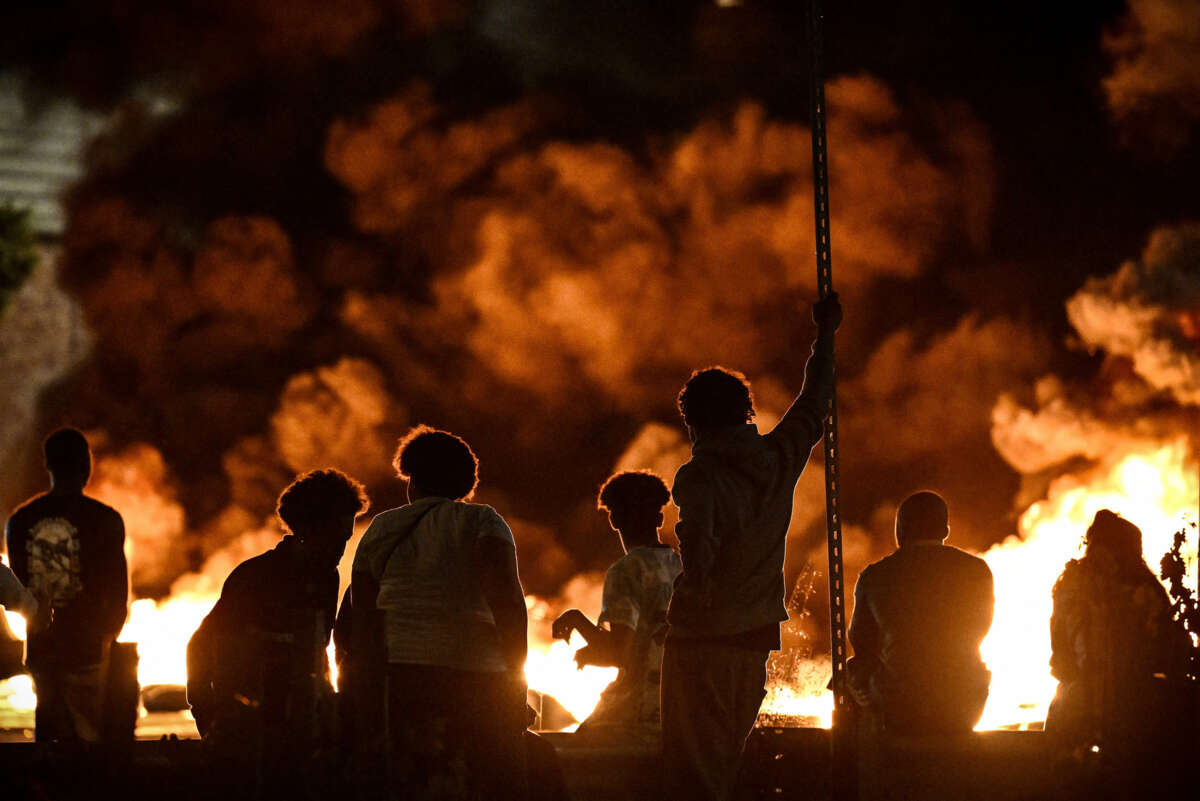
Truthout is a vital news source and a living history of political struggle. If you think our work is valuable, support us with a donation of any size.
The shooting of 17-year-old Nahel Merzouk, a young man of Algerian descent, during a traffic stop in a Paris suburb, has been characterized as a cold-blooded, point-blank execution and has catalyzed massive street demonstrations in cities across the country.
Merzouk is the most recent victim of a 2017 law that loosened restrictions on the use of firearms by police in cases where a driver refuses to stop at an officer’s order. France 24’s Leela Jacinto explained that the 2017 law “was passed following a spate of terror attacks in France,” and has been slammed as a “license to shoot” legislation. Police killed at least 13 people in cases of “noncompliance” in 2022, she reports. While French authorities haven’t released the victims’ racial identities, Jacinto reports that one French sociologist documented an “overrepresentation of ethnic minorities among those killed.”
Street demonstrations have gripped cities throughout France, including Paris, Marseille, Lille and Lyon. Looting and firebombing has been reported. Thousands of demonstrators have been arrested, and hundreds of demonstrators and police have been injured.
After several days of mass protests against racism and police brutality, the Alliance Police Nationale and the National Union of Autonomous Trade Unions, two unions representing half of all French police, called the protesters “vermin” and issued a statement saying, “Police officers are at the front line because we are at war. … Faced with these savage hordes, it’s no longer enough to call for calm, it must be imposed.”
As of this writing, a Twitter campaign launched by the far right National Front party’s Jean Messiha has raised more than €1 million for the family of the police officer — over four times the amount raised for the family of Merzouk.
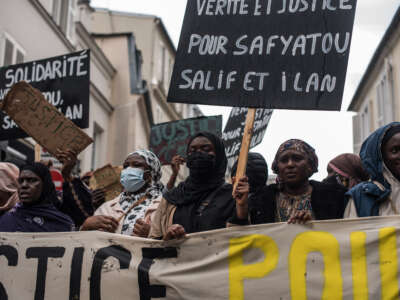
This Fight Is Global: Abolitionists From the US and France Join in Conversation
Prison abolitionists are talking across national lines about the connections and differences between their struggles.By Erica R. Meiners , Shirley Leslie , Melanie Brazzell , TRUTHOUT
Other than mobilizing the police, the French government has been ineffectual in response to Merzouk’s police killing, failing to acknowledge the underlying causes of the uprisings. French President Emmanuel Macron’s initial response was to state, “Nothing justifies the death of a young person,” calling Merzouk’s shooting “inexcusable” and “inexplicable.” On July 4, Macron convened more than 300 French mayors to begin to explore underlying causes and solutions, but the meeting resulted in finger-pointing among right and left parties and no concrete next steps.
In the only concrete proposal for change to date, politicians from the left-wing La France Insoumise party introduced draft legislation that would abolish the 2017 police firearms law. Meanwhile, the United Nations Human Rights Office urged the country to tackle “deep issues” of racism and discrimination in law enforcement.
As in so many cases of police-perpetrated violence, police had their own version of the shooting, claiming that Merzouk was driving erratically and threatening officers’ lives. However, Harrison Stetler reports for The New York Times that cellphone footage taken by a bystander showed one of the officers aiming his firearm at Merzouk’s driver’s window at point-blank range. The words, “I’m going to put a bullet in your head,” are heard before the car begins to accelerate, and the officer fires the fatal shot. The officer has since been given a preliminary charge of voluntary homicide.
Stetler, a journalist who writes about French politics and culture, wrote that, “Macron has tended to attribute deaths at the hands of the police to the regrettable errors of individual public servants,” and not the French judicial system. “Since coming to office in 2017, the president has relied on the police forces, cementing their central role in French political life.”
During President Marcon’s tenure, the police and National Guard have been called out repeatedly in the face of mostly peaceful massive protests, including Yellow Vest movement protests opposing inflation, higher gas prices and unpopular pension reforms, as well as the enforcement of pandemic restrictions.
The death of Merzouk and the uprisings that have followed must be understood in the context of France’s history of conquest and its refusal to address the consequences of racism in the present. Andrew Hussey described the ongoing toll of France’s colonialism in his 2014 book, The French Intifada: The Long War Between France and Its Arabs.
France has a large Muslim population including people from North Africa, the Middle East and the so-called “Black Atlantic,” which includes West Africa stretching from Mali to Senegal. Most of this Muslim population is descended from former subjects of the French empire with many living in poverty in neglected high-rises built in the banlieues, suburbs ringing the more affluent centers of major cities. For most tourists visiting Paris, these banlieues are only visible during the ride to and from the airport.
According to Le Monde, one of France’s largest newspapers, Algeria and other North African countries see Merzouk’s killing as evidence of the continued marginalization of North African immigrants. Le Monde notes Algerian newspaper El Khaber’s view of the killing, in which the paper writes, “A dramatic event has brought France face to face with its stubborn refusal to acknowledge a violent colonial past. France continues to marginalize generations of immigrants. Even if they were born on its territory, it has refused to accept them as French citizens with full rights.”
Indeed, shortly after the UN Human Rights Office issued its statement, “the French Foreign Ministry released a statement rejecting the UN’s accusation of racism among its police,” as Jacinto reported for France 24. “Any accusation of racism or systemic discrimination in the police force in France is totally unfounded,” the foreign ministry said.
Jacinto also noted Merzouk’s killing was only the latest example of police-perpetrated violence against ethnic minorities, mostly young men. High-profile police killings included a 2005 killing of two youth in a suburb north of Paris, which resulted in nationwide riots, and the 2016 killing of another young man from a north Paris banlieue.
André Rakoto, a defense and security analyst at Paris 8 University, promulgated the individual officer-focused “bad apple” excuse during a France 24 debate: “I understand the anger, losing a 17-year-old is tragic. But I think the way the procedure is going, it’s going in the right direction. I think we’re facing a policeman who acted badly, who’s not representative of the whole police force.”
His fellow panelist, Inès Seddiki, a French-Moroccan activist and founder of GHETT’UP, a nongovernmental organization working in Paris’s underserved banlieues, disputed this conclusion. “I don’t agree with the justice minister that this officer is on trial; it’s not the whole police. I disagree. I think it’s the whole police,” said Seddiki. “I think it’s a structural problem that we should try to address.”
Now, as is often the case, the media has turned its attention to the uprisings. A Sunday report on CNN had International Diplomatic Editor Nic Robertson in Paris focusing entirely on the demonstrations and violence. Robertson didn’t once mention Merzouk’s police-perpetrated murder.
Rokhaya Diallo, writing for The Guardian, addressed the roots of the nationwide demonstrations, writing, “The crimes of the police are at the root of many of the uprisings in France’s most impoverished urban areas, and it is these crimes that must be condemned first. After years of marches, petitions, open letters and public requests, a disaffected youth finds no other way to be heard than by rioting.”
The structural problems of anti-immigrant prejudice and racism within the French justice system, including the unleashing of police enforcers, remain issues that the French government and establishment are so far refusing to directly confront.
By the way, right now, we’re campaigning to find 50 people to start a monthly donation – so if you feel moved to do so, please consider this option.
Bill Berkowitz is an Oakland, California-based freelance writer covering conservative movements. He’s a co-founder of the DataCenter, a research library for social and political activists, where he published Culture Watch, a newsletter tracking right-wing movements, and in 2005, he received a Special Journalism Award from the Before Columbus Foundation.
…READING LIST
HUMAN RIGHTS
Israel Killed Civilians, Targeted Hospitals in Jenin With US Weapons and Support
RACIAL JUSTICE
Dutch King’s “Apology” for Colonial Slavery Is an Erasure of History
POLITICS & ELECTIONS
Investigation Finds Thomas Has Benefited From Ultrawealthy Network for Decades
POLITICS & ELECTIONS
Oklahoma Official Says Lessons on Tulsa Race Massacre Shouldn’t Discuss Racism
POLITICS & ELECTIONS
A Jan. 6 “Moms” Group Funded by Big Lie Donors Is Stoking Voter Suppression
PRISONS & POLICING
10 Years After Historic Hunger Strike, Will CA Finally End Solitary Confinement?
RELATED STORIES

Policing Does Not Have Problems — It Is the Problem
Policing is neither reformable nor redeemable.
By George Yancy , TRUTHOUT
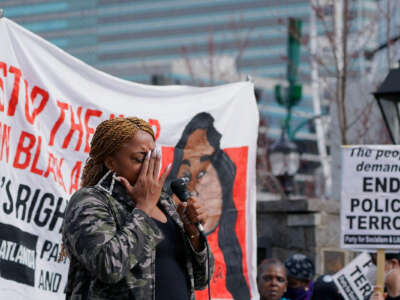
We Must Refuse “Normal Life” After Police Violence Like Killing of Tyre Nichols
We do not have to throw ourselves back into capitalist normalcy after acts of state violence are inflicted on us.
By Austin C. McCoy , TRUTHOUT
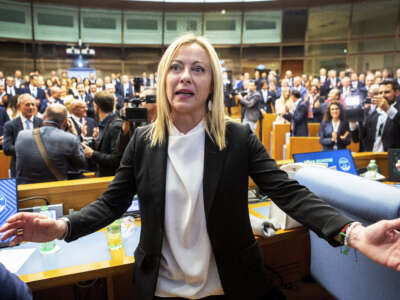
European Far Right Saw Electoral Wins in 2022. Reversing Them Will Not Be Easy.
The far right continues to grow in Europe, with extremist parties gaining ground in Italy, France and Sweden.
By David Renton , TRUTHOUT
LATEST STORIES
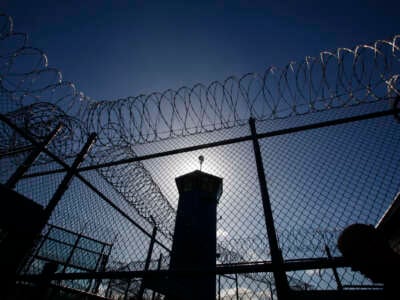
10 Years After Historic Hunger Strike, Will CA Finally End Solitary Confinement?
Prisoners refused food, demanding changes to solitary confinement. Now they are pushing to end the practice altogether.
By Victoria Law , TRUTHOUT

Immunity Doctrines Have Made the US Constitution Useless — It’s Time to End Them
Overlapping immunity doctrines insulate officials from the consequences of their actions, no matter how egregious.
By Trace Mitchell , TRUTHOUT

In Brutal Summer Heat, Prisoners Say Their Cells Are Like “Stifling Hot Coffins”
Days of extreme heat without access to enough water and cooled air become deadlier for an aging prison population.
By Victoria Law , TRUTHOUT
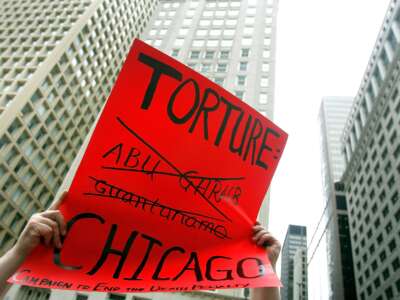
Chicago Is Building a Police Torture Memorial, But Police Violence Continues
Survivors hope the memorial will ensure the Chicago Police Department’s crimes will never be justified nor forgotten.
By Noah Berlatsky , PRISM
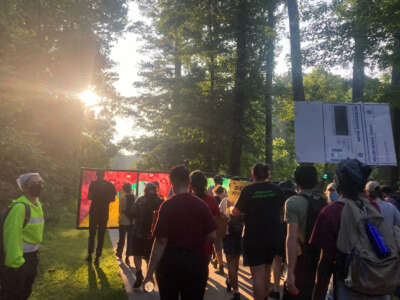
Stop Cop City Week of Action Showed Movement’s Strength Amid Rampant Repression
Police sought to repress and intimidate protesters during the week of action, but the movement only emerged stronger.
By Cody Bloomfield , TRUTHOUT
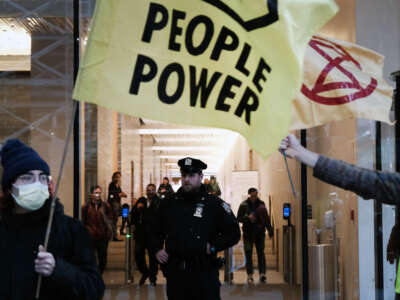
The State Is Increasingly Weaponized Against the Most Marginalized
DOJ investigations into white supremacists fell dramatically as those targeting “abortion-related” activism grew.
By Michael Gould-Wartofsky , TOMDISPATCH
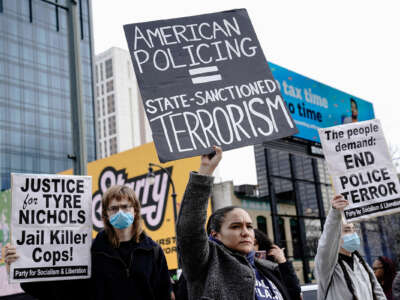
As Movements Like Stop Cop City Gain Power, Police Treat Free Speech as a Crime
This playbook has been used and reused, depending on the political winds of the time.
By Huma Yasin , TRUTHOUT
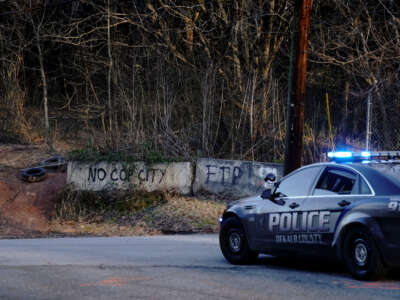
Atlanta’s Attack on Cop City Protesters Should Be a Warning to Us All
The fight against the militarized police training center dubbed “Cop City” is one of the great struggles of our time.
By Angela Y. Davis & Barbara Ransby , TRUTHOUT
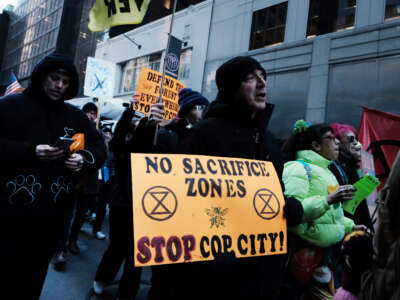
Private Equity Influence Is at the Heart of Cop City, Report Reveals
“Private equity is fully part of and fully profiting from the prison-industrial complex,” says coauthor of the report.
By Katherine Demby , PRISM

Criminalized Survivors Face Judgement and Abuse From Their Own Defense Attorneys
Criminalized survivors routinely encounter defense lawyers who are dismissive at best and abusive at worst.
By Kwaneta Harris & Leigh Goodmark , TRUTHOUT
